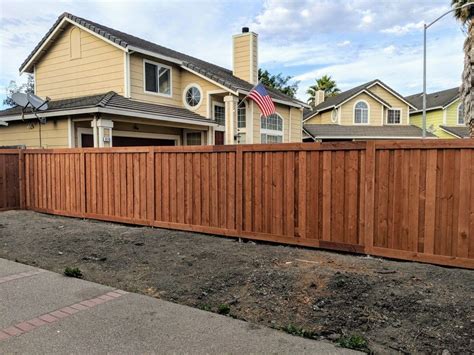The age-old adage "good fences make good neighbors" suggests that a physical barrier between properties can help maintain harmonious relationships between adjacent landowners. However, not all fences are created equal, and some types are more effective than others in promoting neighborly relations. In this article, we will explore the concept of fences that make good neighbors, including their benefits, types, and design considerations.
The Benefits of Fences in Neighborly Relations
A well-designed fence can provide numerous benefits for neighbors, including:
- Defined property boundaries: A clear physical barrier helps prevent disputes over property lines and encroachment.
- Noise reduction: Fences can act as a sound barrier, reducing noise pollution and creating a more peaceful environment.
- Privacy: Fences can provide a sense of seclusion and privacy, which is essential for many homeowners.
- Security: Fences can deter intruders and prevent unwanted access to a property.
- Aesthetic appeal: Fences can add visual interest and beauty to a property, enhancing its curb appeal.
Types of Fences That Make Good Neighbors
Several types of fences are well-suited for promoting good neighborly relations, including:
- Wooden fences: Wooden fences are a classic choice for residential properties. They can be made from various types of wood, such as cedar, pine, or spruce, and can be stained or painted to match the surrounding architecture.
- Vinyl fences: Vinyl fences are a popular alternative to wooden fences. They are low-maintenance, durable, and can mimic the appearance of wood.
- Metal fences: Metal fences are a great option for properties that require added security. They can be made from aluminum, steel, or wrought iron and can be decorated with ornate details.
- Bamboo fences: Bamboo fences are a sustainable and eco-friendly option for properties. They are lightweight, easy to install, and can add a natural touch to the landscape.
Design Considerations for Fences That Make Good Neighbors
When designing a fence that promotes good neighborly relations, consider the following factors:
- Height: The height of the fence should be sufficient to provide privacy and security but not so high that it obstructs the view or creates a sense of isolation.
- Material: The material used for the fence should be durable, low-maintenance, and aesthetically pleasing.
- Style: The style of the fence should complement the surrounding architecture and landscape.
- Color: The color of the fence should match or complement the color of the surrounding buildings and landscape.

The Importance of Communication in Fence Installation
Installing a fence can be a complex process that requires communication and cooperation between neighbors. Here are some tips for effective communication:
- Discuss the project: Before starting the fence installation project, discuss the plans with your neighbors to ensure everyone is on the same page.
- Share the design: Share the design and materials with your neighbors to get their input and feedback.
- Establish boundaries: Establish clear boundaries and property lines to avoid disputes.
- Be respectful: Be respectful of your neighbors' time, space, and opinions throughout the installation process.
Conclusion
Fences that make good neighbors are an essential component of any residential property. By choosing the right type of fence, considering design factors, and communicating effectively with neighbors, homeowners can create a harmonious and peaceful living environment. Whether you're looking to install a new fence or repair an existing one, remember that a good fence is not just a physical barrier but also a symbol of respect and cooperation between neighbors.
Gallery of Fences That Make Good Neighbors






FAQs
What is the best type of fence for my property?
+The best type of fence for your property depends on your specific needs and preferences. Consider factors such as durability, maintenance, and aesthetic appeal when choosing a fence type.
How tall should my fence be?
+The height of your fence should be sufficient to provide privacy and security but not so high that it obstructs the view or creates a sense of isolation. Typically, fences range from 3 to 6 feet tall.
Can I install a fence myself?
+Yes, you can install a fence yourself, but it's recommended to hire a professional if you're not experienced in fence installation. A professional can ensure that the fence is installed correctly and safely.
